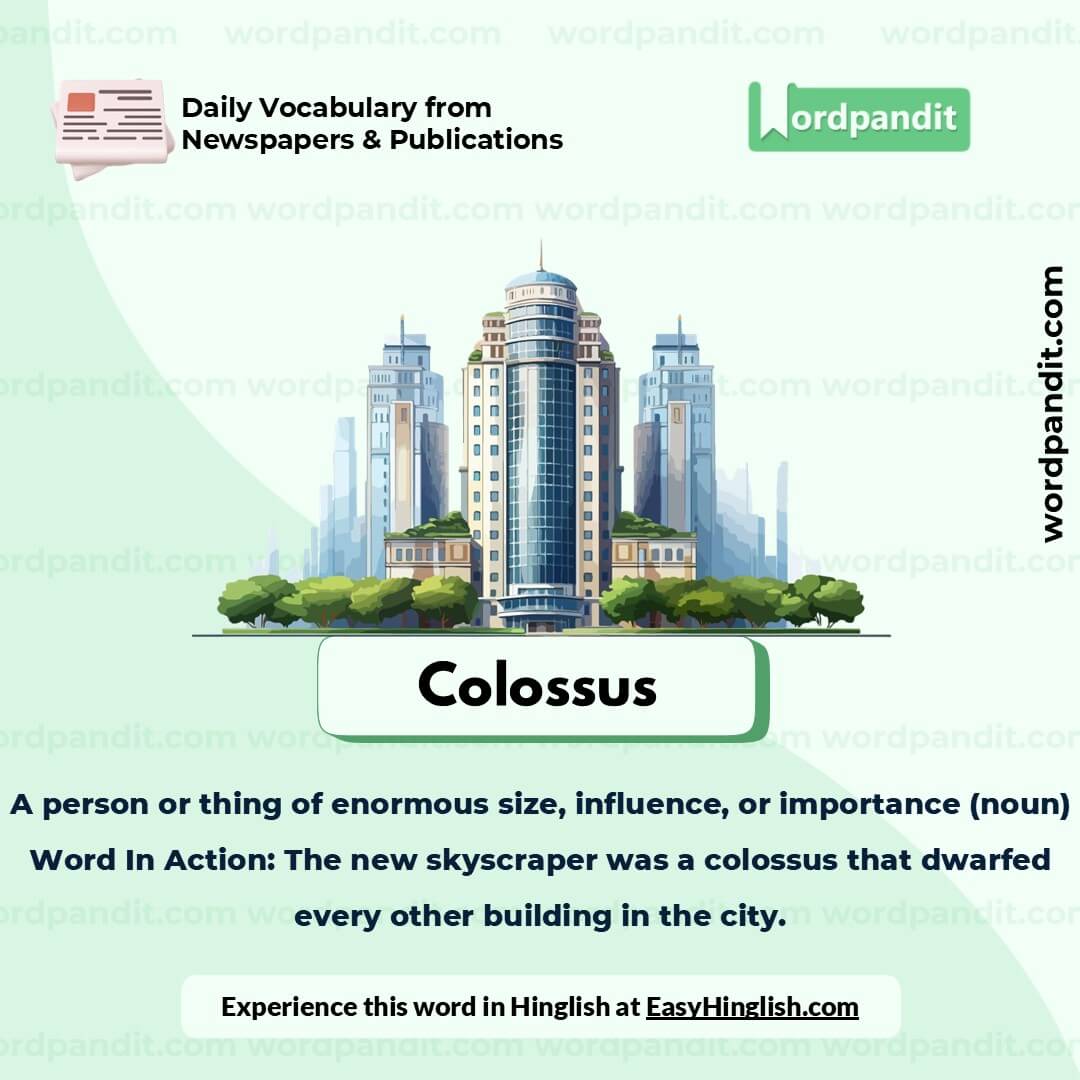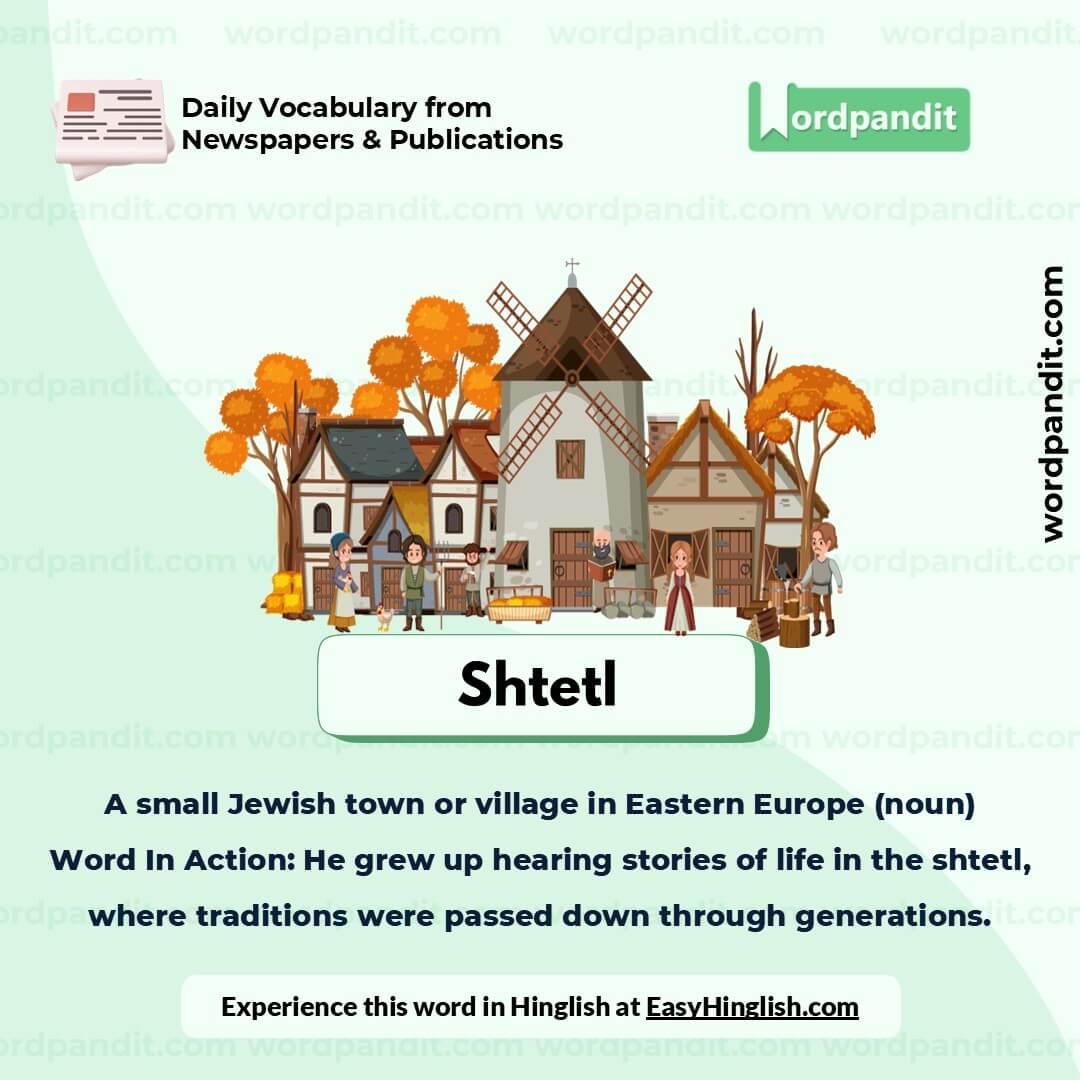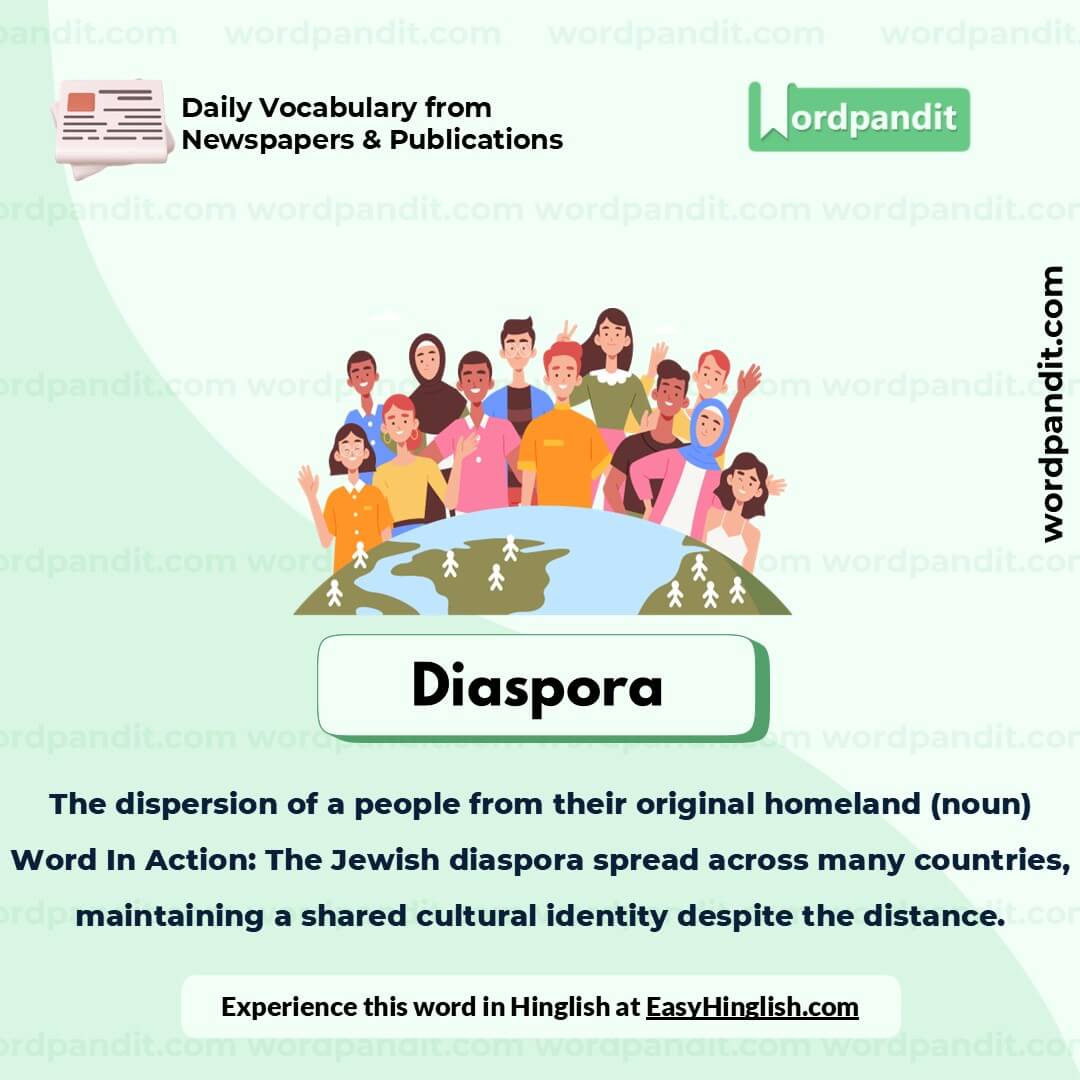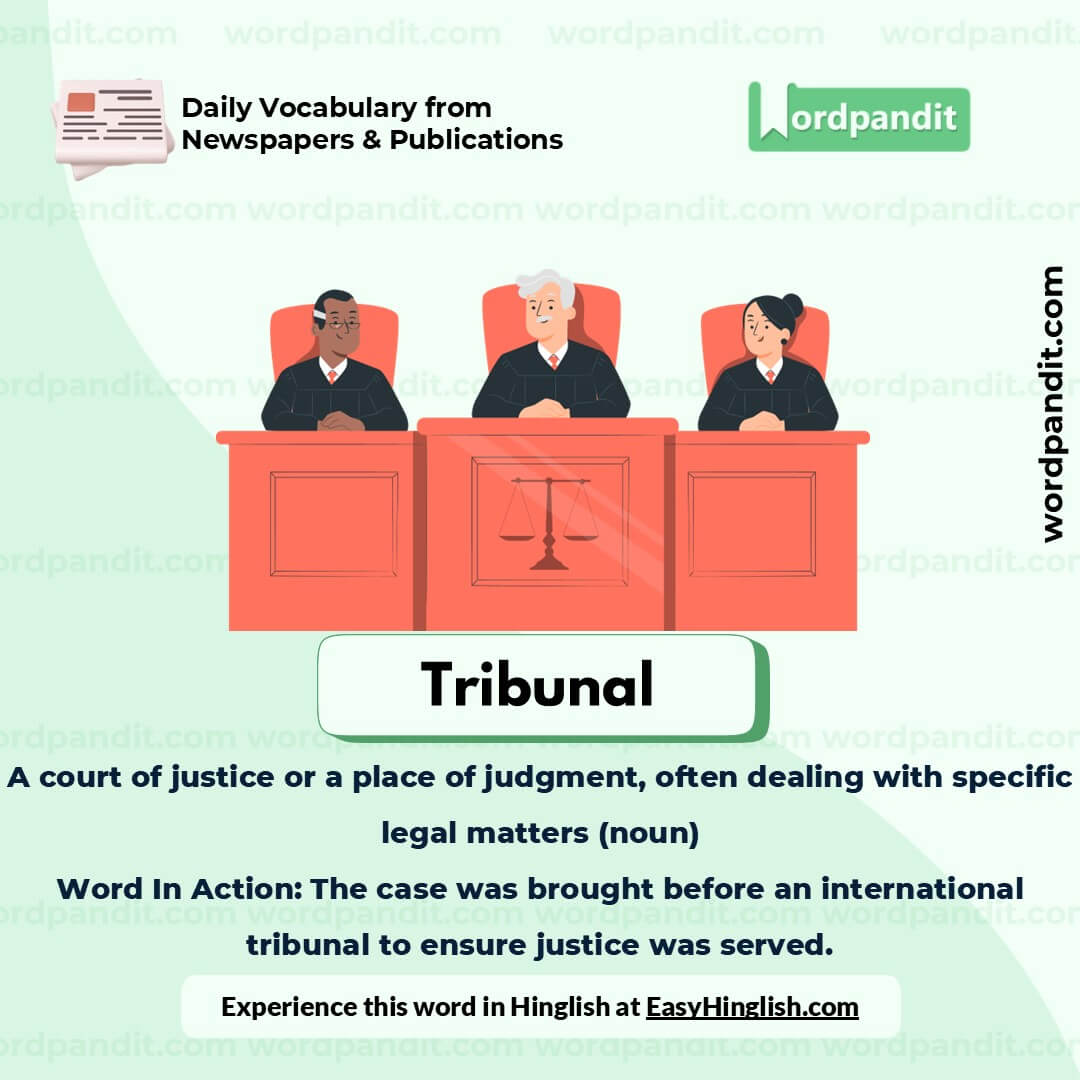Daily Vocabulary from International Newspapers and Publications
Expand Your Vocabulary with Wordpandit’s Global Vocabulary Hub
At Wordpandit, we are committed to helping you develop a truly global vocabulary by drawing from some of the most respected international publications. This section is designed to keep you ahead of the curve by introducing you to words that define global conversations and trends.
The Power of Global Sources
To help you think and communicate on a global scale, we curate vocabulary from renowned international sources, such as:
- The New York Times
- The Washington Post
- BBC
- The Guardian
- The Economist
- Scientific American
- Psychology Today
- And many more...
Stay Global, Stay Competitive
Our daily updates from international publications ensure you are consistently exposed to new words that reflect global news and developments, making sure your vocabulary is not only current but also globally relevant.
Enhance Your Global Perspective
Whether you’re preparing for international exams, aiming to excel in global business communication, or want to enhance your language skills for personal growth, Wordpandit offers the resources you need to thrive in a global context.
Effective Learning, Global Reach
Our learning methodology combines global examples, memory aids, and interactive activities, allowing you to internalize new words effectively and apply them in real-world scenarios.
Begin Your Global Vocabulary Journey Now!
Why Choose Wordpandit?
Practical Learning: Focus on words you'll actually encounter in real-world reading, enhancing your comprehension and communication skills.
Diverse Content: From current affairs to scientific breakthroughs, our varied sources expose you to vocabulary across multiple domains.
Effortless Integration: Make Wordpandit a part of your daily routine. Just a few minutes each day can significantly boost your lexicon over time.
Your Path to Vocabulary Mastery
- Visit our Daily Vocabulary section regularly
- Explore new words and their usage in context
- Practice incorporating these words into your own writing and speech
- Track your progress as your vocabulary expands
Start Your Journey Today
Embark on your vocabulary enhancement journey with Wordpandit. By consistently engaging with our daily posts, you'll build a robust vocabulary that serves you well in academic, professional, and personal contexts.
Remember, a word a day keeps linguistic limitations at bay. Make Wordpandit your daily companion in the quest for vocabulary excellence!
WORD-1: Colossus
Context:
"You begin to understand why Israelis do not feel like the invincible colossus of their critics’ imagination." - The Guardian
Explanatory Paragraph:
Colossus refers to something or someone that is immensely large or powerful, often dominating a particular field or area. In this context, it's used metaphorically to describe how Israel is perceived by its critics.
Meaning: A person or thing of enormous size, influence, or importance (noun)
Pronunciation: kuh-LOS-us
Difficulty Level: ⭐⭐⭐ (Intermediate)
Etymology: From Greek kolossos, referring to a giant statue
Synonyms & Antonyms:
Synonyms: giant, titan, behemoth, leviathan
Antonyms: dwarf, weakling, lightweight
Usage Examples:
- The tech company became a colossus in the industry, dominating the market.
- The ancient Colossus of Rhodes was one of the Seven Wonders of the World.
Cultural Reference:
The Colossus of Rhodes, a massive statue of the sun god Helios, stood as a symbol of strength and power in ancient Greece.
Think About It:
Can something that seems like a colossus also have hidden vulnerabilities?
Quick Activity:
Write about a time when you faced a challenge that seemed like a colossus. How did you overcome it?
Memory Tip:
Think of "colossus" as something colossal—gigantic and powerful.
Real-World Application:
Colossus is commonly used in business or sports to describe market leaders or champions that seem invincible.
WORD-2: Shtetl
Context:
"They were as powerless as their ancestors in the shtetl." - The Guardian
Explanatory Paragraph:
Shtetl refers to small Jewish towns or villages in Eastern Europe, where Jewish communities lived in relative isolation and often faced economic hardship.
Meaning: A small Jewish town or village in Eastern Europe (noun)
Pronunciation: SHTEH-tul
Difficulty Level: ⭐⭐⭐ (Intermediate)
Etymology: From Yiddish, meaning "little town"
Synonyms & Antonyms:
Synonyms: village, hamlet, community
Antonyms: metropolis, city
Usage Examples:
- Many Jewish families trace their roots back to a shtetl in Eastern Europe.
- The stories of shtetl life were often filled with both hardship and community bonds.
Cultural Reference:
Fiddler on the Roof, a famous musical, is set in a fictional shtetl, depicting Jewish life in Tsarist Russia.
Think About It:
How do small, close-knit communities like shtetls shape the identity of their inhabitants?
Quick Activity:
Imagine life in a shtetl. Write a short description of a day in the life of someone living there.
Memory Tip:
Think of "shtetl" as a "small town" starting with "S", to recall its meaning of a little village.
Real-World Application:
The concept of a shtetl is often referenced in discussions of Jewish heritage and history, especially in relation to immigration and culture preservation.
WORD-3: Diaspora
Context:
"I am thinking of diaspora Jews, who see what Israel does, and how it looks, from the outside." - The Guardian
Explanatory Paragraph:
Diaspora refers to the dispersion of any people from their original homeland. It's often used to describe ethnic or national groups that live outside their traditional homelands, maintaining a sense of shared identity.
Meaning: The dispersion of a people from their original homeland (noun)
Pronunciation: dahy-AS-puh-ruh
Difficulty Level: ⭐⭐⭐ (Intermediate)
Etymology: From Greek diaspeirein, meaning "to scatter"
Synonyms & Antonyms:
Synonyms: displacement, exile, migration, scattering
Antonyms: homeland, native land, reunion
Usage Examples:
- The Armenian diaspora has established communities in many countries around the world.
- There is a rich cultural exchange between diaspora communities and their homeland.
Cultural Reference:
The Jewish diaspora is one of the most well-known examples, with Jewish communities established across the globe following their exile from Israel.
Think About It:
How does living in a diaspora community shape one's sense of identity and connection to their ancestral homeland?
Quick Activity:
Research a diaspora community of your choice and write about their contributions to the country they now reside in.
Memory Tip:
Think of "diaspora" as "dispersed across" to remember its meaning of scattering from a homeland.
Real-World Application:
The concept of diaspora is used in discussions about immigration, globalization, and the preservation of cultural identities across borders.
WORD-4: Credence
Context:
"Israeli actions both in the Gaza Strip and the occupied West Bank in the last year gave new credence to the use of these twin terms."
Explanatory Paragraph:
Credence refers to the belief in or acceptance of something as true. It is often used when discussing whether claims, ideas, or theories are given validity or weight in public opinion or by authorities.
Meaning: Belief in or acceptance of something as true (noun)
Pronunciation: KREE-duhns
Difficulty Level: ⭐⭐⭐ (Intermediate)
Etymology: From Latin credere, meaning "to believe"
Synonyms & Antonyms:
Synonyms: belief, trust, faith, confidence
Antonyms: doubt, disbelief, skepticism, denial
Usage Examples:
- The expert's testimony lent credence to the argument that climate change is man-made.
- His consistent honesty gave credence to his claims about the company's future.
Cultural Reference:
"The idea gained more credence after several scientists backed it up with new research."
Think About It:
What factors help you decide whether to give credence to a new idea or claim?
Quick Activity:
Think of a popular conspiracy theory. What kind of evidence would lend credence to or disprove it?
Memory Tip:
Link "credence" with "credible," as they both share the root meaning of belief or trust.
Real-World Application:
Credence is often used in legal, scientific, or journalistic contexts where the truthfulness of information is crucial.
WORD-5: Tribunal
Context:
"The pro-Palestine movement looks to the work of international tribunals such as the International Court of Justice." - Al Jazeera
Explanatory Paragraph:
A tribunal is a type of court or assembly set up to make legal decisions, particularly in cases of international or human rights law. It can be part of the judicial system or a special court set up for specific cases.
Meaning: A court of justice or a place of judgment, often dealing with specific legal matters (noun)
Pronunciation: try-BYOO-nuhl
Difficulty Level: ⭐⭐⭐ (Intermediate)
Etymology: From Latin tribunal, meaning "platform for magistrates"
Synonyms & Antonyms:
Synonyms: court, judicature, judiciary, arbitration panel
Antonyms: chaos, anarchy, disorder
Usage Examples:
- The war crimes tribunal handed down its verdict after months of deliberation.
- She filed her case with a labor tribunal, seeking justice for wrongful dismissal.
Cultural Reference:
The Nuremberg Trials, held by international tribunals, were famous for prosecuting Nazi war criminals after World War II.
Think About It:
Do you think tribunals are more effective than regular courts in handling cases of international law or human rights?
Quick Activity:
Research a case handled by an international tribunal. What were the key issues, and what was the outcome?
Memory Tip:
Think of "tribunal" as "a tribe of judges" coming together to make important decisions.
Real-World Application:
Tribunals are often used in specialized legal fields, such as human rights, international law, or labor disputes, making them crucial in maintaining global justice.


















